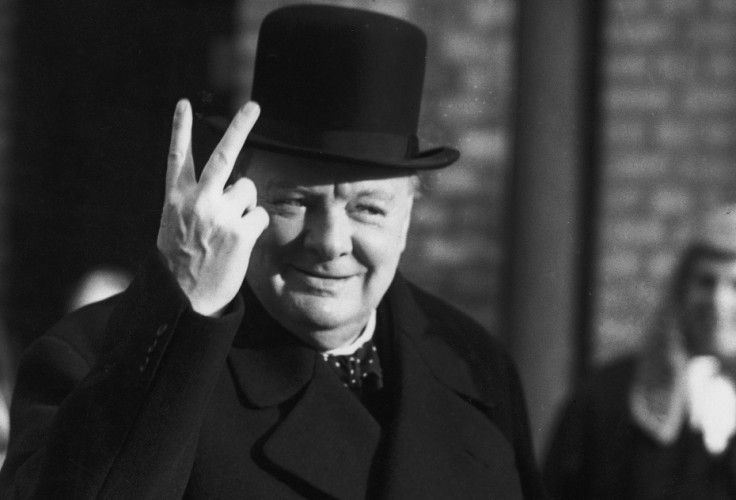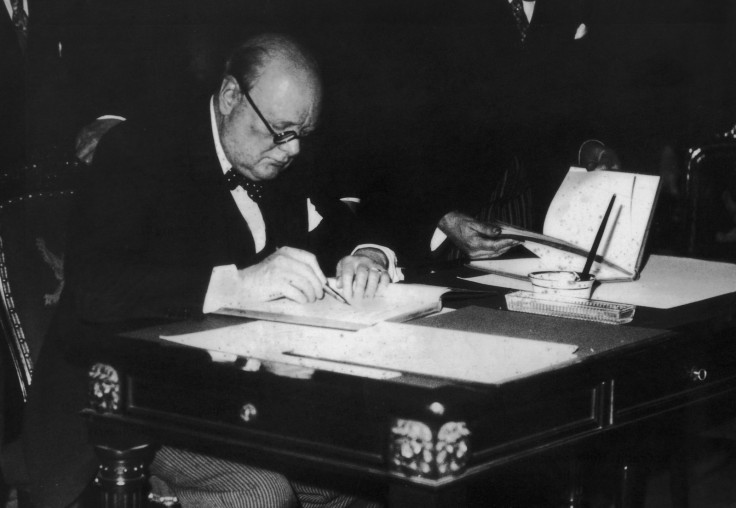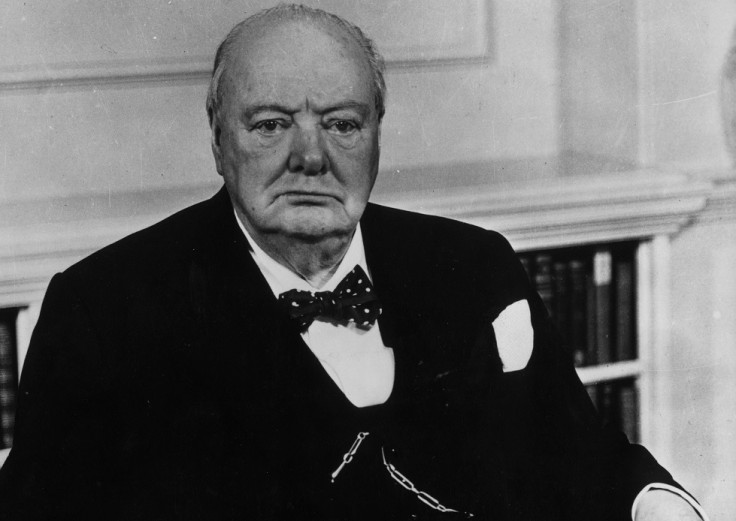50th anniversary of Winston Churchill death: Memorable quotes, speeches and facts about Britain's greatest leader

The UK is marking the 50<sup>th anniversary of the death of Winston Churchill, regarded by many as one of the greatest Britons of all time.
Churchill is best known for his leadership during the Second World War and his stubborn resistance to the Nazi juggernaut.
As one of Britain's most influential orators, his speeches rallied a nation during one of history's darkest times. Away from politics, however, Churchill was a keen painter, writer and historian.
Half a century after Churchill's death, IBTimes UK looks at the former prime minister's most memorable quotes and facts about his life.
"Criticism may not be agreeable, but it is necessary. It fulfils the same function as pain in the human body. It calls attention to an unhealthy state of things."
"I would say to the House as I said to those who have joined this government: I have nothing to offer but blood, toil, tears and sweat. We have before us an ordeal of the most grievous kind. We have before us many, many long months of struggle and of suffering. You ask, what is our aim? I can answer in one word: Victory. Victory at all costs — Victory in spite of all terror — Victory, however long and hard the road may be, for without victory there is no survival."
"We shall go on to the end. We shall fight in France, we shall fight on the seas and oceans, we shall fight with growing confidence and growing strength in the air, we shall defend our island, whatever the cost may be. We shall fight on the beaches, we shall fight on the landing grounds, we shall fight in the fields and in the streets, we shall fight in the hills; we shall never surrender."
"If I was your wife, I would poison your coffee." "Madam, if I was your husband, I would drink it!" (Lady Astor and Winston Churchill)
"From Stettin in the Baltic to Trieste in the Adriatic, an iron curtain has descended across the Continent. Behind that line lie all the capitals of the ancient states of Central and Eastern Europe. Warsaw, Berlin, Prague, Vienna, Budapest, Belgrade, Bucharest and Sofia, all these famous cities and the populations around them lie in what I must call the Soviet sphere, and all are subject in one form or another, not only to Soviet influence but to a very high and, in many cases, increasing measure of control from Moscow."
"If Hitler invaded hell I would make at least a favourable reference to the devil in the House of Commons."
"Never give in – never, never, never, never, in nothing great or small, large or petty, never give in except to convictions of honour and good sense. Never yield to force; never yield to the apparently overwhelming might of the enemy."
"What General Weygand has called the Battle of France is over: the Battle of Britain is about to begin. Upon this battle depends the survival of Christian civilisation. Upon it depends our own British life, and the long continuity of our institutions and our Empire. The whole fury and might of the enemy must very soon be turned on us. Hitler knows that he will have to break us in this island or lose the war. If we can stand up to him, all Europe may be freed and the life of the world may move forward into broad, sunlit uplands... Let us therefore brace ourselves to our duty and so bear ourselves that, if the British Empire and its Commonwealth last for a thousand years, men will still say: This was their finest hour."
"In war, resolution; in defeat, defiance; in victory, magnanimity."
"My dear, you are ugly, and what's more, you are disgustingly ugly. But tomorrow I shall be sober and you will still be disgustingly ugly." (Directed at either MP Bessie Braddock or Lady Astor)
"My rule of life prescribed as an absolutely sacred rite smoking cigars and also the drinking of alcohol before, after and if need be during all meals and in the intervals between them."

Honorary United States citizenship
In 1963, Churchill was the first foreign national to be made an honorary citizen of the United States. Winston Churchill Day is celebrated annually on 9 April, marking the date when he was granted citizenship in eight individual states as a prelude to full citizenship, including in West Virginia, Maryland and New Hampshire.
American roots
Churchill's mother was American. Lord Randolph Churchill, the son of the seventh Duke of Marlborough, married Jennie Jerome, the Brooklyn-born daughter of an affluent financier. The couple had two children, Winston in 1874, and Jack in 1880.
Painting
Churchill was a prolific painter and produced nearly 600 works of art during his lifetime. Sarah Thomas of Sotheby's told the BBC that he took up painting later in life, as "relief from all the pressures of his work". Yet according to Thomas, some paintings were "pretty poor and amateur and full of splodges".
Chart hit
In 1965, Churchill became the first prime minister to enter the album chart posthumously with The Voice Of. In October 2010, he entered the charts for a second time with a record marking the 70th anniversary of the Battle of Britain called Reach for the Skies, by the RAF's Central Band.

Prisoner of War
Churchill escaped a prisoner of war camp after he had been captured while working as a correspondent in South Africa during the Boer War in 1899. He had been captive for four weeks before he jumped over a wall into a neighbouring property.
With a bounty of £25 on his head, Churchill hitched rides on trains towards Lourenco Marques. Eventually, he contacted the British consul and established his identity.
First World War failure
Churchill's political career began in 1900 when he was elected to Parliament. By 1911, he had advanced to become First Lord of the Admiralty.
In this position, he prepared a naval assault during the First World War against the Ottoman Empire, which he believed would allow the British to link with their Russian allies, putting pressure on Germany's eastern front and potentially tip the balance of the conflict.
In March 1915, however, Ottoman fire sank three Allied battleships and damaged three others – leaving the rest to retreat.
Nobel Prize
Churchill won the Nobel Prize for literature in 1953, beating E.M Forster and Ernest Hemingway. The Nobel committee considered Churchill several times after the end of the Second World War, but the area of historical writing gained little support.
© Copyright IBTimes 2025. All rights reserved.






















